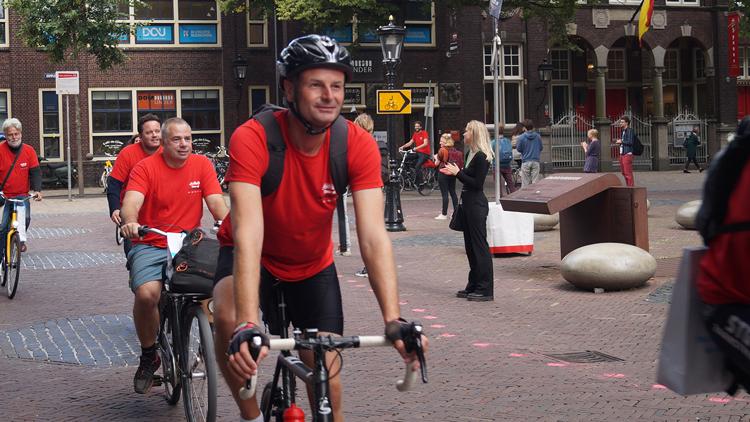Silence means consent: a manifesto against exploitation in academia

Silence means consent, say Professors Ingrid Robeyns (Utrecht University) and Remco Breuker (Leiden University). They have written a book together with Professor Rens Bod (University of Amsterdam): 40 Propositions on Science.
In reality, their forty propositions are about universities. The main thrust of their criticism is that universities are run too much like businesses, which flies in the face of academic values. Mutual solidarity is being undermined and scientists are being forced to do far too much extra work without being paid. Students deserve better, too.
Unprecedented workload
WOinActie has attracted a lot of attention in recent years with its call for more than €1 billion extra in funding for universities. The protestors demanded the resignation of the Minister of Higher Education last year, and have also taken their grievances to the tribunal because of the extra work that is being piled onto academics.
We often hear that Dutch universities are performing particularly well. Isn’t that the case?
Professor Robeyns: “Yes it is, but that's because our academic staff have such high levels of motivation. But that doesn’t mean there isn’t enormous pressure on them. They’re being taken advantage of. A lot of the outstanding research and teaching work that they’re doing goes largely unpaid. It’s terrible when university managers say how proud they are of what is being achieved but fail to acknowledge that has come about through an enormous amount of unpaid labour.”
Why are academics letting that happen?
Professor Breuker: “Academics tend to shy away from activism. I don't see myself as an activist either. But at the moment, we’re having to work so hard that it’s unhealthy, with constant applications for funding and countless temporary employment contracts. People prefer to look the other way because when you look at things objectively, the truth is rather ugly.”
You are arguing for greater democracy at universities and you also want to abolish the Association of Universities in the Netherlands. What’s the thinking behind that?
Professor Robeyns: “The approach of the Association has not worked. It has failed to prevent years of budget cuts at our universities. So we need a change of strategy among our leadership. It would be better to have a national senate, with elected university representatives.”
Professor Breuker: “One of the propositions in the book is that we don’t necessarily even need to have universities. But if we do choose to have them, we have to fund them adequately. In the end, you only get what you pay for. At the moment our universities are surviving on borrowed time.”
Fierce competition
You have denounced the fierce competition for research funding. But could it be that too many people want to work in academia?
Professor Robeyns: “Given the number of extra hours we’re all working, I’d say we have too few. In practice, thirty to forty percent of a student's teaching currently consists of structural, unpaid overtime worked by teaching staff.”
You want more democracy, with an elected rector for example, and fewer concepts borrowed from the world of business. But won’t that make managers less agile and responsive?
Professor Breuker: “Democracy can be impractical, that’s true, but that's the point. It may be more difficult to run the university, but it will be run better.”
Professor Robeyns: “At the moment, academics have very little influence, not even through the participatory bodies. It’s not enough for the rector just to be selected from the world of academia. We need a debate about who should be representing academic staff.”
What needs to be done to turn things around?
Professor Robeyns: “The university community needs to stand up and resist: students and teaching staff together. But so many academics are fatalistic. They don't have the energy to oppose what’s happening.”
Student numbers
You also want to see fewer students at university. Why is that?
Professor Robeyns: “Not necessarily fewer students, but we do want to see the right students in the right place. At university, students learn to think in an academic way. And that should be their aim, not a higher salary or a better job. Students whose talents are more practical in nature should be encouraged to attend the universities of applied sciences. We don't currently know what that would mean for student numbers.”
Professor Breuker: “It’s not that we’re saying: we don't need ‘your sort’ here. The university also offers a kind of vocational training, training people to become academics. But the prestige around universities is getting in the way at the moment. You want students who are intrinsically motivated. University programmes shouldn’t be ‘higher’ than HBO programmes, but at the same level.”
(When contacted, the Association of Universities in the Netherlands declined to comment on the suggestion that it should be abolished.)
’40 stellingen over de wetenschap’ (‘40 Propositions on Science’) by Rens Bod, Remco Breuker and Ingrid Robeyns was published this month by Uitgeverij Boom.